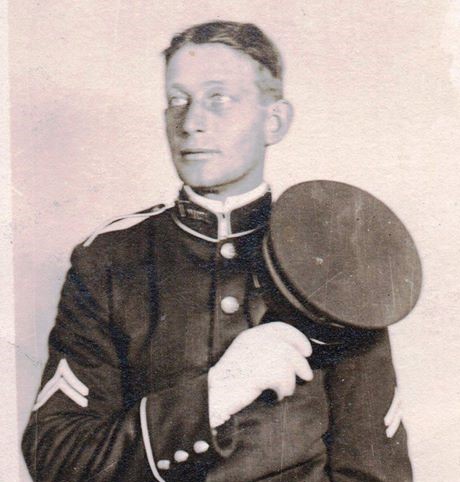A lot of great Americans have been reaching out to me for more information on how to determine what unit or organization their loved ones served in while they were in the military. Obviously, the easiest way to do determine this is to review an individual’s military personnel or service record. But let’s say you don’t have this, what then? Well, there are some places you may search for potential clues:
- Family stories: A great way to pick up facts about a loved one’s service. From tidbits such as the location of service and dates you can often ascertain what units your loved one may have been in. I recommend you record the details as you receive them.
- Photographs: Look for keys, such as distinctive insignia on the uniform, patches, or even the type of uniform. To the trained eye, these can all provide important details about unit and time frame of service.
- Census records: Where were they living when they enlisted? Particularly important in Civil War and earlier research, as neighborhoods and small towns often raised companies of men that served together.
- Newspaper clippings: A treasure trove of facts (unless of course it is fake news 😉 )
- Journals, diaries & correspondence: Firsthand accounts will often provide a great deal of detail as to locations and events they may have participated in. These are all very useful
- Death records & obituaries: May often offer service details, such as awards, dates, campaigns, etc.
- Local histories: Similar to census records, local histories may tell you which units were derived from, or served in a particular area.
- Grave markers: May include information regarding campaigns/conflicts, awards/decorations, and dates. All of this information can be useful.
I know what a lot of you may be thinking…so now I know the unit, what do I do with that?
Well, the philosopher George Santayana once said, “Those who cannot remember the past are condemned to repeat it.” And generally, as military organizations, since we want to repeat past successes while avoiding past failures, we do a fairly good job of recording our histories. This allows us to collectively “remember the past.” These records can prove to be an effective way to discover information regarding actions of the units in which loved ones served.
There are a number of repositories which can assist you in this search to learn more about actions of units. These include:
- The U.S. Army Center of Military History for the Army
- Naval History and Heritage Command for the United States Navy
- The United States Air Force Historical Research Agency
- The United States Marine Corps History Division.
- Military museums, heritage foundations, and libraries can also be useful in assisting you to locate information regarding military units.
If you would like, please feel free to drop me a line at: info@pixdsinc.com I love helping people with these type of searches. Please feel free to contact me!
Obviously when it comes to identifying the team (or unit) you want to get as much information and as much detail as possible, and hopefully, the information above will help you to do so. So, since my space is limited, I will have to wrap it up here. Next month we are going to explore how to obtain individual service records.
BUT WAIT…since it is the Holiday season, I would like to include a special gift for you, a Holiday Colonels Corner extra! Have you ever heard of the Christmas pickle? Traditionally, the Christmas Pickle is a Christmas ornament in the shape of a pickle, hidden somewhere on the tree. Whoever finds the unique pickle ornament is said to have good fortune in the coming year. In some families, the pickle-finder even gets an additional present—or the privilege of choosing the first present to open. Many think this is GERMAN tradition – NOT TRUE! Most believe the Christmas Pickle started as a marketing campaign with Woolworth in the 1890s. However, another story of the Pickles has its origins tied to the Civil War and Private John C. Lower. Private Lower was a Bavarian soldier, fighting for the Union, who was captured by the Confederate Army. After spending a good deal of time in captivity and given few rations, Lower was starving. On Christmas Eve, he was so hungry that he begged his captor for anything to eat, even a pickle. His guard took pity on him, and perhaps due to the Christmas spirit, Lower was given a pickle. After the war, Lower said that the pickle saved his life and kept him from dying of starvation. When he returned to his family, he told them the story. And every year after that, his family hid a pickle in the Christmas tree as a way to remember his suffering and the mercy which allowed him to live and return to them. So enjoy those Christmas Pickles this Holiday Season, and until next month, keep your musket clean and your powder dry!





